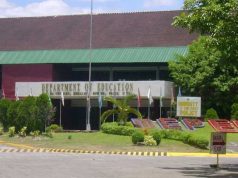
Two major telecommunication firms in the country laid out reasons why the government should extend its deadline for the subscriber identity mobile (SIM) registration this month.
The Department of Information and Communications Technology (DICT) gave telcos up to April 26, Wednesday, to let its subscribers register their SIM cards to continue using them or risk having them deactivated.
Days before the deadline, Globe Telecom and Smart Communications reiterated their call to extend the date to give the public more time to fulfill the requirements needed for the registration.
It was in October 2022 when the SIM Card Registration Act or Republic Act 11934 was signed into law. It was implemented on Dec. 27, 2022.
While Smart is leading in the telco industry in terms of the number of subscribers registered, it said that nearly half of them remain unregistered.
“Extending the deadline will give our remaining 45% subscriber base ample time to register. At present, all 160 million subscribers in the country are given only 121 days to register,” Cathy Yang, PLDT and Smart first vice president and group head for corporate communications, said in a statement.
“Comparatively, in other countries like Indonesia and India, PTEs were given one to two years of a registration window to better prepare for and promote SIM registration,” she added.
PTE is short for Public Telecommunications Entities or the service providers.
“The extension will also help our subscribers secure valid IDs or proofs needed to register their SIM. We don’t want to alienate or leave behind the remaining 45% who have not yet registered,” Yang continued.
Samples of valid IDs include government-issued IDs like a driver’s license, passport, or a PhilSys ID, among others.
Smart said 55.1% or over 3.5 million of its subscribers have already registered their respective SIM cards.
For Globe, the government must also allow alternative forms of identification to ease the registration for subscribers without valid IDs.
Telcos reportedly said that the lack of a valid ID is among the causes of a low turnout of registered SIM users, according to an ABS-CBN News report on Thursday.
In the meantime, Globe urged its subscribers to register their SIMs before April 26 while the telco waits for the regulator’s decision.
“We encourage all our subscribers to register their SIMs as soon as possible to maintain uninterrupted access to mobile and broadband services,” Ernest Cu, Globe Group president and chief executive officer said to the news outlet.
On Wednesday, the DICT said that it would no longer extend the SIM registration deadline for the public.
Under RA 11934, the deadline could be extended for up to 120 days.
The DICT said that the SIM Card Registration Act is part of the government’s efforts to supposedly improve national security and curb fraudulent activities such as SMS-related scams and identity theft.
SMS stands for short message service.
According to the government agency, the republic act places “primacy on the fundamental rights of Filipinos and is replete with safeguards to ensure the confidentiality and security of user data.”
“The DICT is one with telcos in ensuring that Filipinos enjoy safe and secure mobile phone services through the holistic implementation of the SIM Registration Law,” it added.
Lawmakers have been pushing for the measure following the increase of spam text messages that leads to scams and the hacking of several subscribers’ personal accounts.
However, critics of the SIM Card Registration Act said that the registration could intrude on the users’ privacy and might not be effective in discouraging scams and crimes via text messages or phones.
Cybersecurity policy analyst Mary Grace Mirandilla-Santos previously told Philstar.com that it “has the potential to put the security, privacy, and welfare of citizens at risk.”
She added that having a central database for subscribers’ information will become an attractive target for cyber attackers and that 100% security cannot be guaranteed.
Ivy Grace Villasoto, former officer-in-charge of the National Privacy Commission’s Privacy Policy Office, also said that the mandatory SIM registration may result in the intrusion of a person’s privacy rights, specifically “a heightened risk of the occurrence of personal data breaches and unauthorized processing of personal data.”
Last Monday, petitioners from different sectors asked the Supreme Court to declare the law unconstitutional for infringing on four sections of the Bill of Rights enshrined in the 1987 Philippine Constitution.
Specifically, they asserted that the mandatory SIM registration “restricts the constitutionally-guaranteed freedom of speech and violates the right against unreasonable searches and seizures and the right to substantive due process.”








